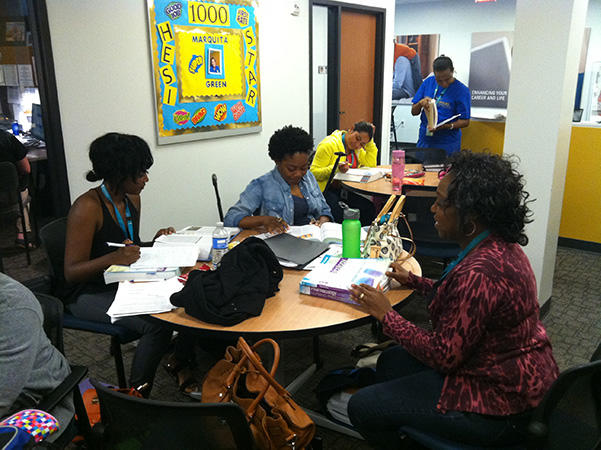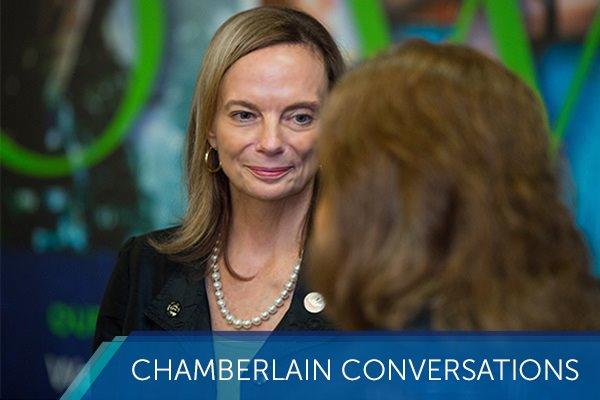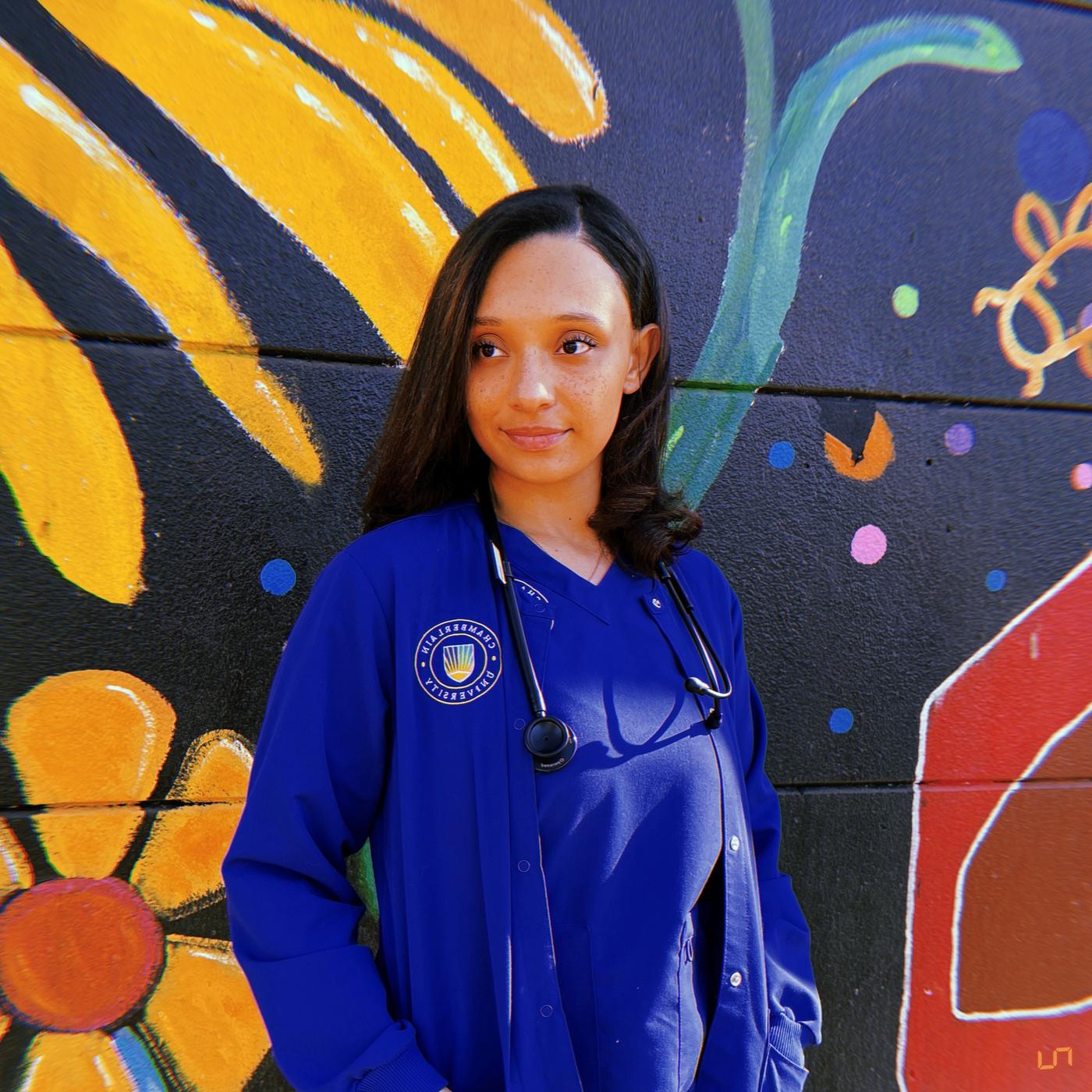Featured
Tags
Share
- Home / Blog / Campus News / Ask a Chamberlain DNP Graduate: Melinda Spencer-Smith
Ask a Chamberlain DNP Graduate: Melinda Spencer-Smith
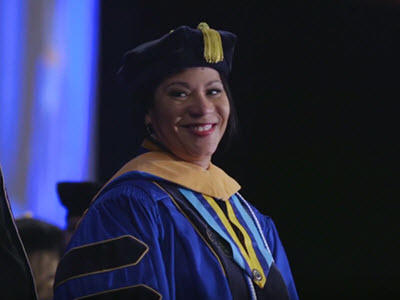
Melinda Spencer-Smith graduated from Chamberlain’s Doctor of Nursing Practice degree program in July 2016. Walking the stage marked the pinnacle of her educational journey – having first earned a diploma, then a bachelor’s, then a master’s and finally her doctorate.
“Earning my doctorate is a life dream, an accomplishment that is going to help me to propel nursing further,” she said. “I’ve now reached the level of a transformational leader. I'm able to help others make changes, I'm able to bring research into the practice setting and be someone that can bridge the gap between research and nursing in the work setting.” More from Melinda:
Why were you interested in earning a Doctor of Nursing Practice degree?
As a DNP, you have the ability to not only affect one person, but affect entire populations. You're able to collaborate with other nurses, other healthcare providers, and spread information and knowledge. Not only at my facility where I work – I’m planning to attend conferences and publish.
What brought you to Chamberlain’s program?
I looked at about six or seven programs in depth. I checked the curriculum, I checked the requirements, I checked the practicum. The practicum at Chamberlain allowed me to do a change project at my work. That was really important to me because I wanted to connect making a change through research to my work setting and it gave me the ability to do that.
Tell us more about your change project in the DNP program.
For Chamberlain’s change project, you go into a facility or an institution and do a needs assessment to see how you can improve outcomes for patients. You identify the framework, use a theory to outline how you're going to make the change, and then implement the change and evaluate if the change worked. We use a statistical database to show what we've done and how it has made a difference.
Currently, I work at a community mental health center. There are times when there's no one there to provide care except medication on the weekend. I felt that was an area where we could make a change and add a program that was evidence-based. I developed an evidence-based toolkit for anxiety and depression for healthcare providers to access and found it created a significant improvement in outcomes. And not only were the other staff members and my peers excited about this, but the patients were excited as well because this gave them another option.
How has earning a DNP changed your practice?
I feel that my degree has made me a more confident nurse. If there's something I'm not sure about, I know how to go about finding the information out. Even just talking to drug representatives and other physicians in my practice, I can go head-to-head with them talking about research. Research can change people's lives and learning how to actually go about grading, which is evaluating the research and data that's out there, has helped me understand and ask the right questions. It has changed me tremendously – people have even told me that I've changed.
How did you work with the faculty during your practicum?
During my practicum, I worked with Dr. Juanita Rass – she was excellent to work with. She helped me to develop my research question properly, she helped me through the IRB process and it passed through the first time thanks to her leadership and direction. Through our collaborative threads, she encouraged us, made us think out of the box and really pushed us to do the best that we could. She always had a positive thing to say when sometimes you’re feeling low, and made you feel like you’ve got this. All I can say is praises for Dr. Rass – she was excellent as a role model and as a scholarly writer.
What would you say to a nurse considering a DNP program?
Most nurses that I talk to that are considering their DNP are afraid that they cannot do it and that it’s beyond their capabilities. What I would say about Chamberlain's program is that it's doable, it's workable, you have support and you're also able to make a difference in your job setting. And actually in your life also. So I would say – and I say this to a lot of people – we need more people that complete their doctorate. It really does give us additional knowledge and skills to be able to take care of our patients and improve health outcomes. I would tell them that they can do this.
What’s the next dream?
My next dream that I have is publishing, and one day I would love in be in charge of a university – a chair or a dean. That's where I would like to retire from eventually.
Watch more of Melinda’s story here:
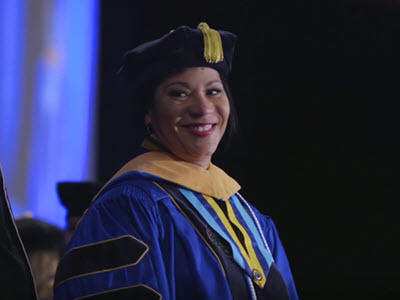
Important information about the educational debt, earnings, and completion rates of students who attended this program can be found at www.chamberlain.edu/dnpdisclosure.
By Lauren Pope
More from Campus News
Request More Information
To receive the Chamberlain University Program Guide, including associated career paths, please select a program of study.




